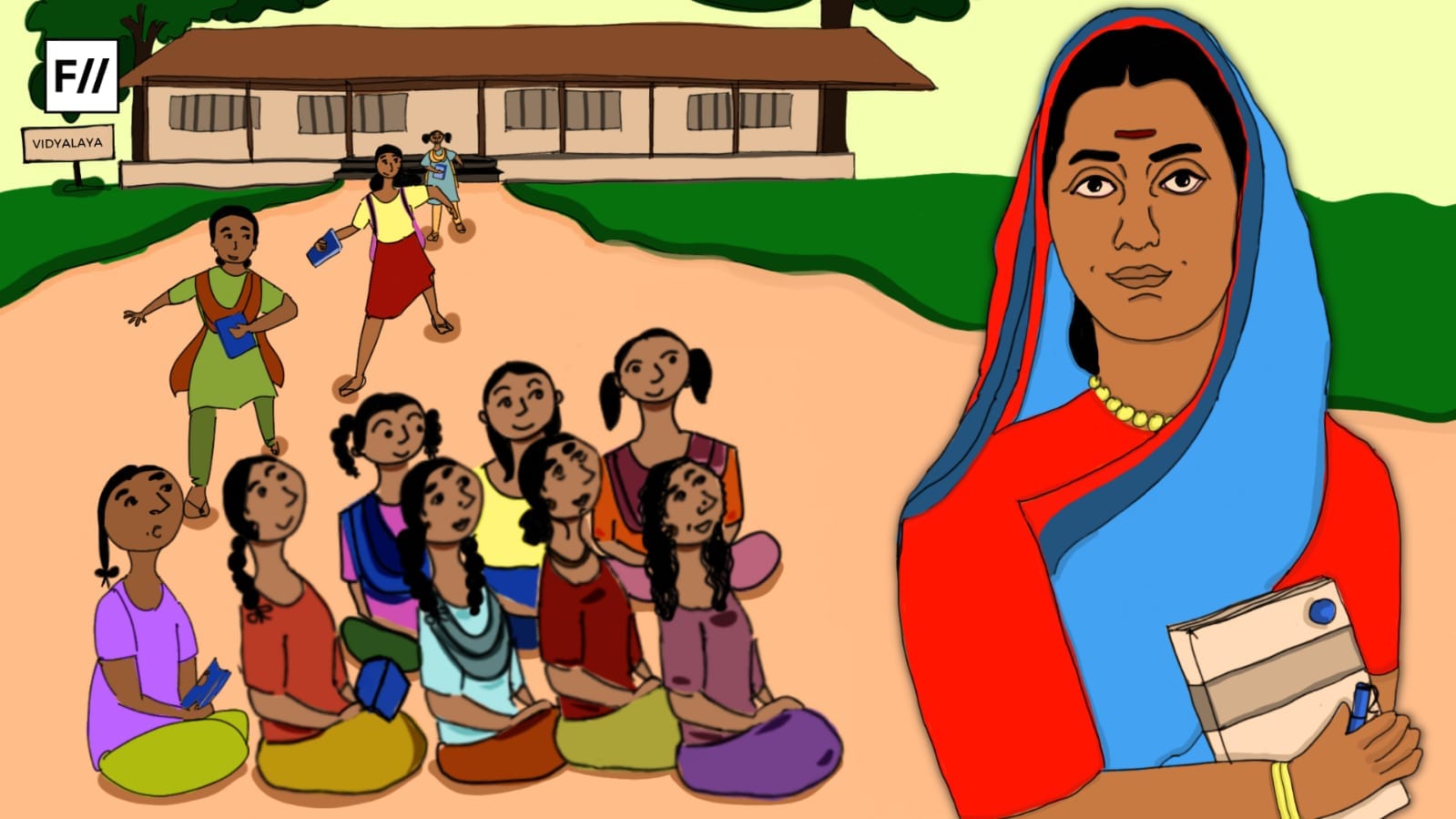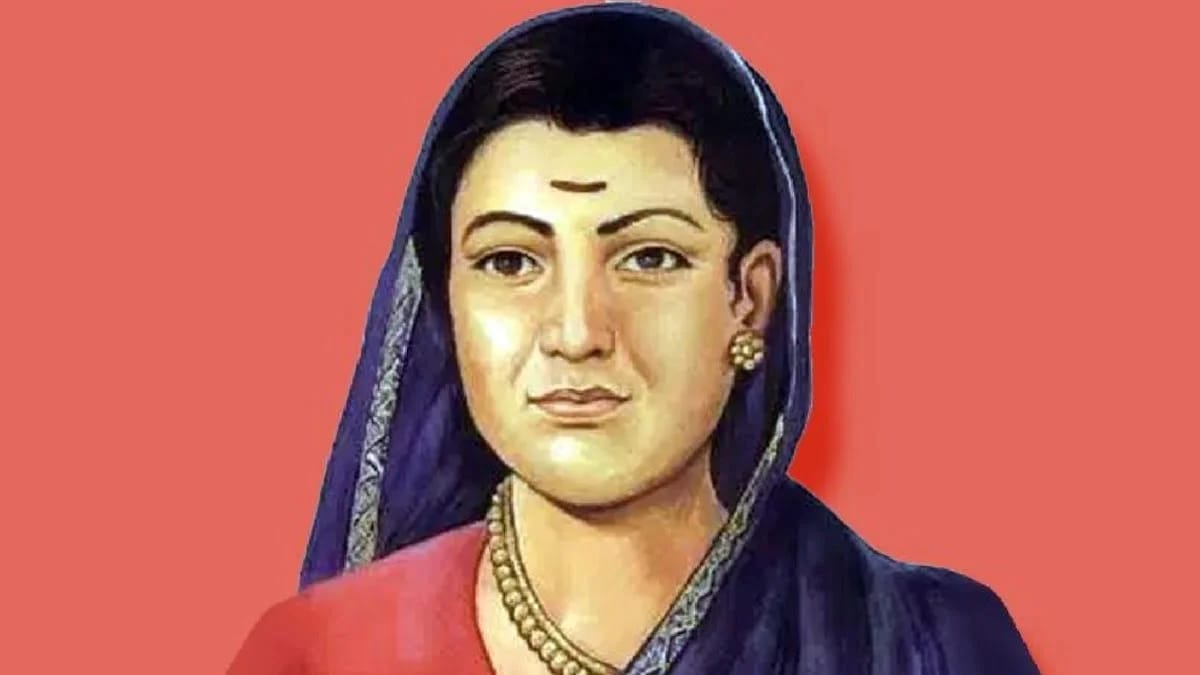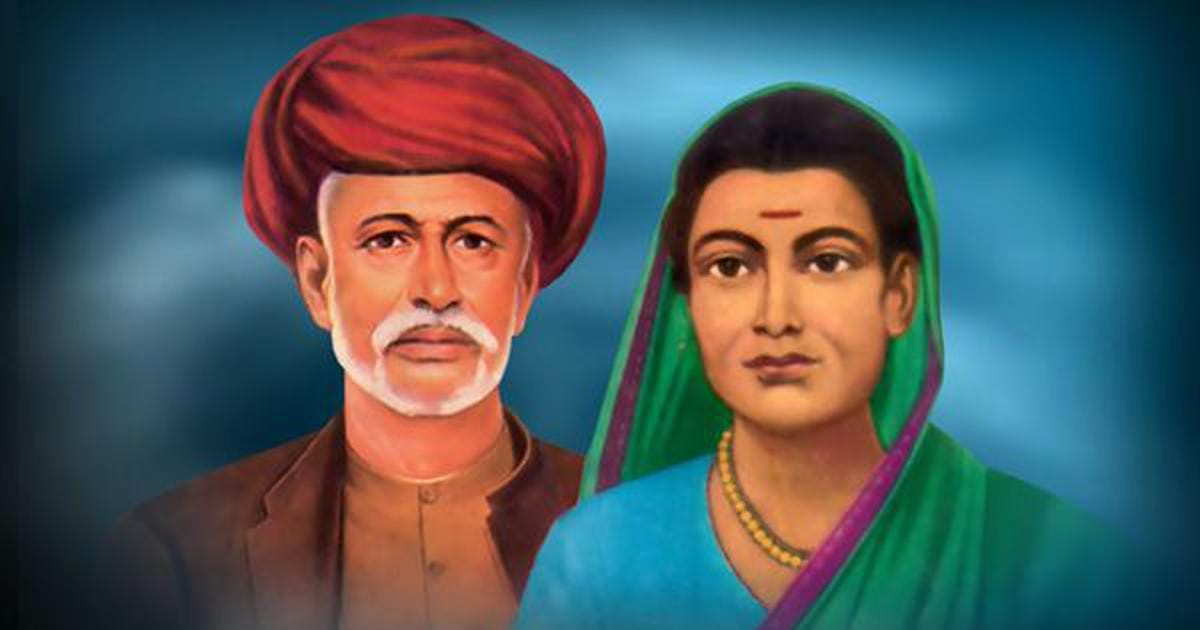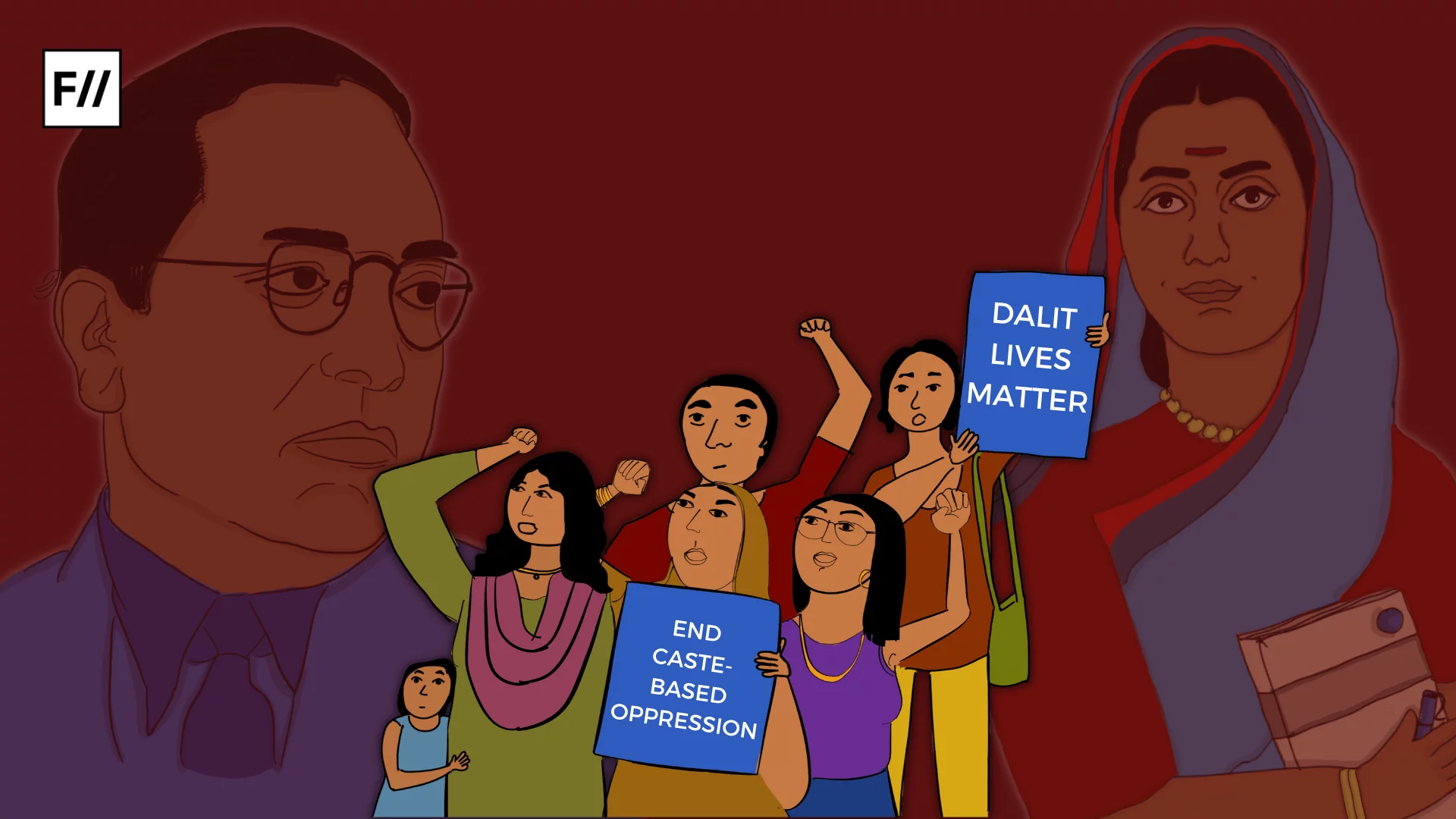The government of Telangana decided to celebrate Savitribai Phule’s birth anniversary of 3rd January as an official “women teachers’ day” throughout the state as per the G.O.Rt. No.9 dated 02/01/2025. In a historical precedent, Telangana is the first state in India to celebrate her birth anniversary as the state function every year and revisit her legacy by commemorating her anti-caste struggle, feminism, education and social reforms against class oppression and religious dogmatism in society.
The government of Telangana decided to celebrate Savitribai Phule’s birth anniversary of 3rd January as an official “women teachers’ day” throughout the state as per the G.O.Rt. No.9 dated 02/01/2025.
This announcement is a long-awaited decision from both state or central governments, as even after 75 years of India’s independence, Dalit-Bahujan icons like Savitribai Phule remain as unsung heroes of history and are yet to find a place in the pantheons of the state.

But, the Telangana state government’s step to celebrate her birth anniversary as the state function brings her name to every school and household, especially the marginalised ones, invoking the transformative power of education as emancipation. The state’s accord to honour her sacrifice and services as an institutionalised practice for social change can instil a sense of pride among the Dalit-Bahujans and strengthen their claim to social justice.
Life and works of Savitribai Phule
Savitribai Phule was born on January 3, 1831, in Naigaon village near Pune, Maharashtra, to a Mali family. Her parents were Lakshmi and Khandoji Navesh Patil. At the age of 10, she was married to Mahatma Jyotirao Phule, who encouraged her to pursue education and teach girls from marginalised communities.
Her life stands as a powerful testament to women’s empowerment against caste hierarchy and gender oppression to access education as she defied the prohibitions outlined in Manusmriti, which denied education to all the women (including savarna women) and Shudra and Ati-shudras.
The pioneer of women’s education
Savitribai Phule was a trained teacher and a trailblazer in the field of education. She played a pivotal role in running India’s first school for girls, started by Mahatma Jyotirao Phule in Bhidewada, Pune, in 1848. Despite facing immense hostility and ridicule from the upper castes and her own community members, she remained undeterred.
Savitribai used to carry an extra saree to school, knowing she might be pelted with cow dung by Hindu caste men.
Savitribai used to carry an extra saree to school, knowing she might be pelted with cow dung by Hindu caste men. Yet, none of these insults or threats deterred her mission to educate girls. She even responded to such abuse with grace, saying that teaching was a noble profession and the stones hurled at her were no less than flowers.
A report in the The Poona Observer in 1852 highlighted her impact, stating that there were more girls enrolled in her school than boys in government schools, attributing this to the superior quality of teaching in the girls’ school. In 1853, the Phule couple transformed their Pune home into a shelter for Brahmin widows who had been exploited by men. This shelter, known as Balhatya Pratibandhak Griha, became a haven for preventing infanticide and assisted in safe deliveries for pregnant women.
A champion of social justice
She championed the ideals of social justice by joining Sathyashodhak Samaj (Truth Seekers’ Society) founded by Mahatma Jyotirao Phule in 1873. As a Sathyshodhak, she denounced all religious dogmatisms and all forms of hegemony. Even after Mahatma’s death, she and their son, Yashwant Rao continued to promote education and drive social reforms.
Savitribai did not choose to be a mere spectator when the epidemic of Bubonic Plague broke out but started a clinic in Hadapsar, Pune in 1897. She and her son served the public health and treated the afflicted until her last breath despite knowing that Plague was a contagious disease. Such unparallel commitment for social justice should be commemorated by revisiting her life and legacy.
Savitribai’s legacy
Mahatma Jyotirao Phule and Savitribai Pule were pioneers of social revolution and they left a commendable legacy behind for all the oppressed sections such as women, Dalits, Adivasis, and poor to unite against the exploitation by the hegemonic forces in the society. She has been a symbol of rationality, modernity, empowerment, and scientific thinking.
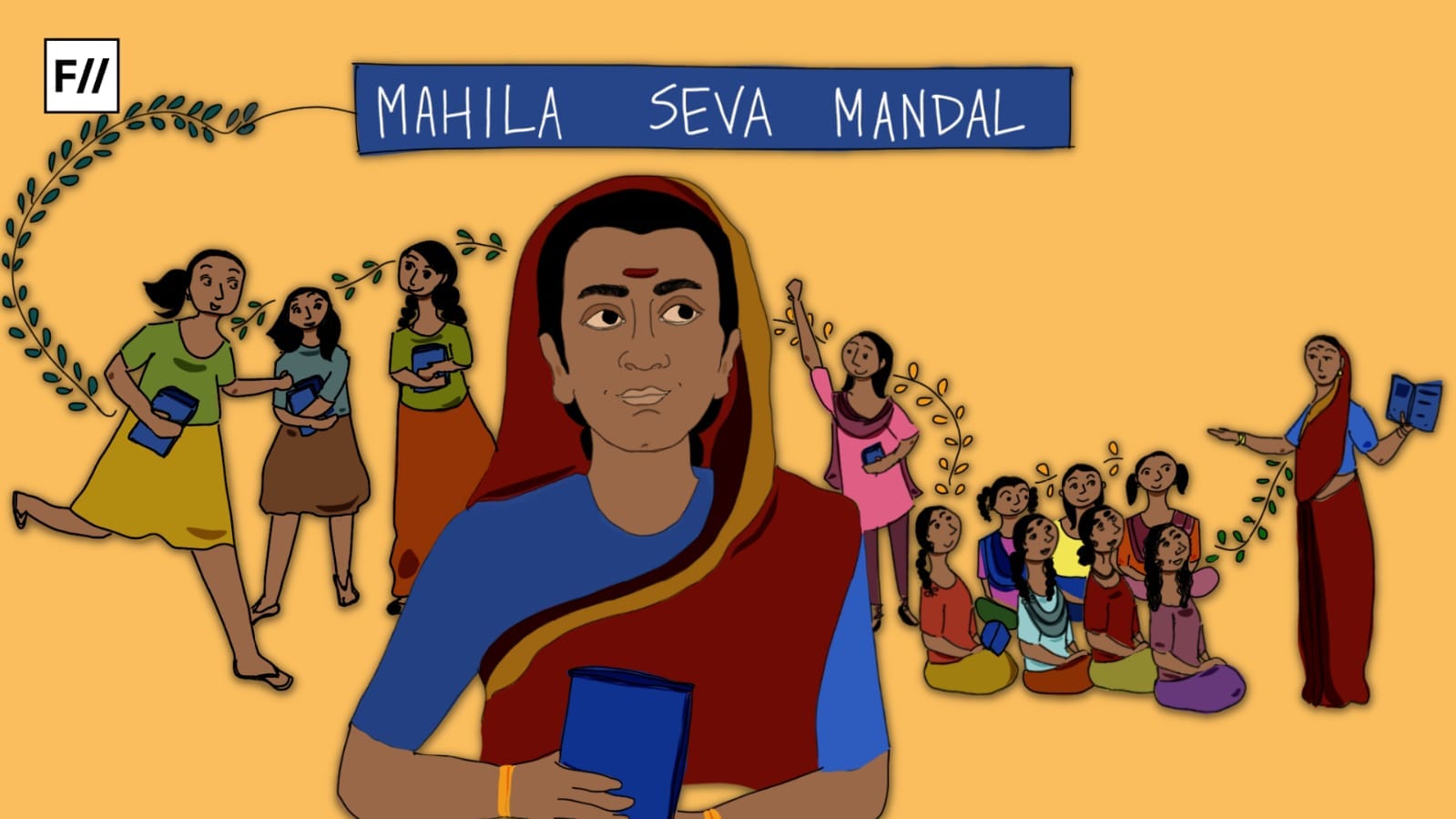
She is often hailed as “mother of Indian feminism”, and her legacy resonates with the values of inclusivity, equality and diversity in contemporary India. Her vision continues to inspires the first generation students and scholars to take a sense of pride and develop resilience in overcoming historical hurdles and injustice.
Dalit-Bahujan and women solidarity against gender and caste oppression
The revolutionary duo, Savitribai Phule and her husband Mahatma Jyotirao Phule became the voice of the voiceless by advocating for the dignity and rights of the marginalised sections. Savitribai Phule was rightly honoured as ‘Krantijyoti‘ (Light of Revolution) for her services not only as the first female teacher but also as the first feminist who questioned the patriarchal caste system.
Her activism and assertive poetry gave a radical call to dismantle the oppressive traditions and learn to be awakened, industrious, and self-reliant to fight injustice. Her life and works stand as a powerful testament to fight the caste and gender inequalities through the solidarity of the subaltern forces. For her, education is a powerful tool in uniting the toiling masses against any repressive state and society.
Savitribai Phule’s life and works as a feminist deeply inspired the late feminist scholar, Sharmila Rege (1964-2013) who described herself as a “Phule-Ambedkarite feminist”, stressing on the intersectionality of caste, gender, class and sexuality in the discourse of feminism debates in India.
Savitribai Phule’s life and works as a feminist deeply inspired the late feminist scholar, Sharmila Rege (1964-2013) who described herself as a “Phule-Ambedkarite feminist”, stressing on the intersectionality of caste, gender, class and sexuality in the discourse of feminism debates in India.
The Phule couple exemplified their belief that women’s emancipation and empowerment could eradicate the caste hierarchies. Like Dr. B.R. Ambedkar, they advocated inter-caste marriages as a means to dismantle the caste system by breaking the tradition of endogamy embedded in Indian social fabric. To set a precedent, they arranged their son, Yashwant Rao’s marriage to a woman from a different caste.
In doing so, they laid the groundwork for Dr. B.R. Ambedkar’s seminal work, Annihilation of Caste, and furthered the vision of a casteless society.
State initiative: symbolism vs substantive action plan
The series of initiatives by the government of Telangana, such as renaming Telangana Mahila University (formerly known as Koti Women’s College) after Telangana’s woman freedom fighter Chakali Ilamma and celebrating Savitribai Phule’s birth anniversary as the state function of Women Teachers’ Day, indicate a significant and undeniable commitment to her legacy of women’s education and empowerment.
However, these initiatives raise an important question: Is the ruling party in Telangana, Indian National Congress, merely symbolically espousing the ideals of social justice championed by Dalit-Bahujan icons to overcome its “legitimation crisis” (Habermas, 1973) that resulted in its electoral setbacks in the last one and half decade?
Or will it embark on any substantive plan to translate her legacy into actionable policies by addressing the educational needs of the downtrodden in the state? It must be noted that Telangana state has more than 90 % of its population consisting of disadvantaged sections such as Scheduled Castes (SC), scheduled tribes (ST), Other Backward Classes (OBCs) and minorities.
Despite this, NCRB 2022 data reveals that the crime against SCs and STs is on the rise in the recent past in the state.
Despite this, NCRB 2022 data reveals that the crime against SCs and STs is on the rise in the recent past in the state. The table 1 indicates that women are the worst victims as there has been increasing violence against women and the marginalised in Telangana ever since 2014.
Table 1: Year wise number of crimes against women in Telangana from 2014-2024.
| Year | 2014 | 2015 | 2016 | 2017 | 2018 | 2019 | 2020 | 2021 | 2022 | 2023 | 2024 |
| Telangana | 14147 | 15425 | 15374 | 17521 | 16027 | 18394 | 17791 | 20865 | 22066 | 19013 | 19922 |
The most worrisome aspect of education in Telangana is that the drop-out percentage of students in the school education is higher than national average (ASER report, 2024). Further, there is a looming education crisis which might lead to the shut down of around 1800 government schools in Telangana now.
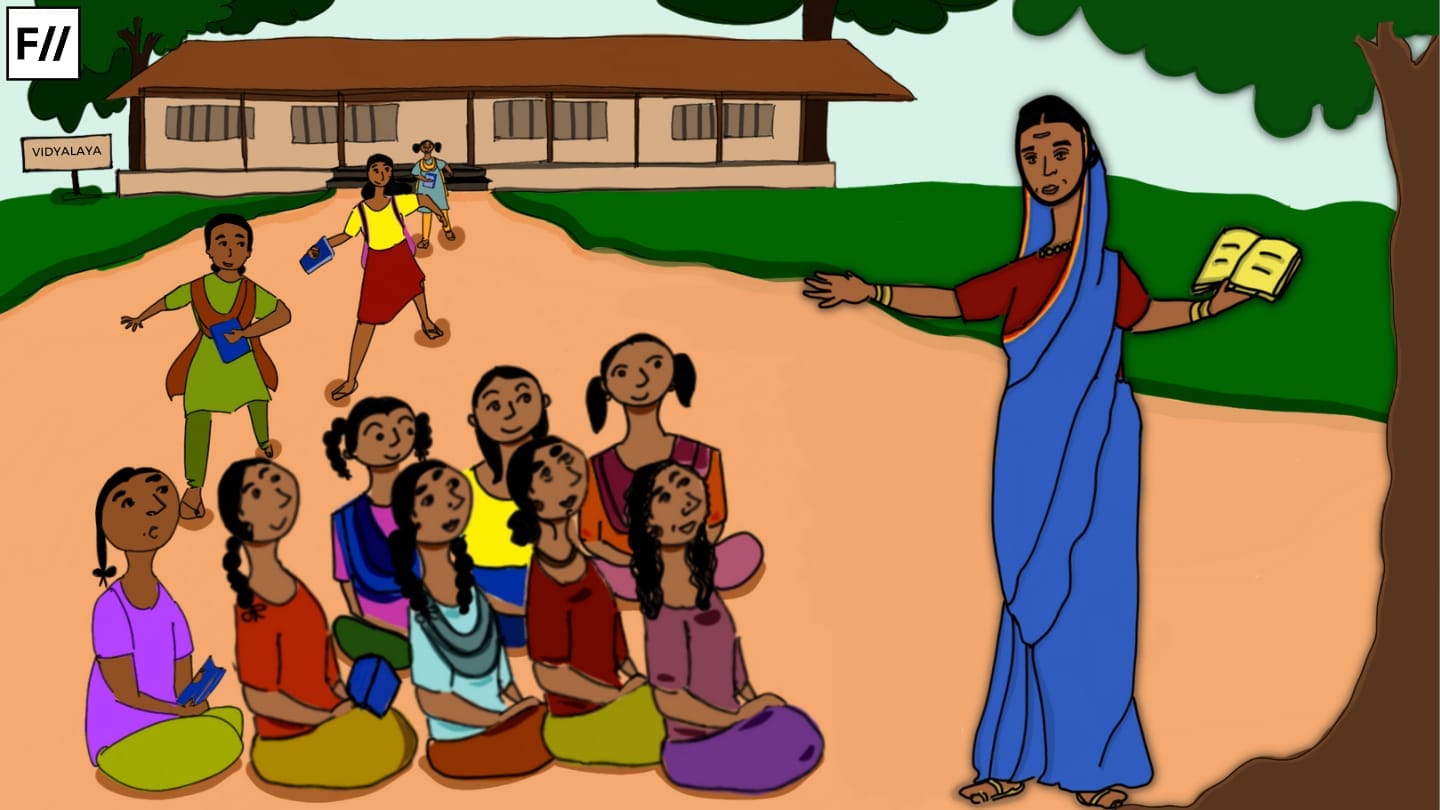
Such education crisis could be propelled by policy paralysis of the previous K Chandrashekar Rao government, which ruled Telangana for the last one decade. This education crisis, if not resolved, will be detrimental to the interests of downtrodden communities in the state.
However, the true tributes to Savitribai Phule will be in rectifying the policy failures of the previous government to deliver social justice, particularly education and protection for marginalised communities.
However, the true tributes to Savitribai Phule will be in rectifying the policy failures of the previous government to deliver social justice, particularly education and protection for marginalised communities.
The Telangana government’s decision to celebrate Savitribai Phule’s birth anniversary as “women teachers’ day” should be welcomed as a historic move to honour her sacrifices and services and legitimise her legacy of social justice. Now, this decision challenges the educators, political parties and policy makers to introspect on their take on her contribution to act on inclusivity, gender equality and diversity in politics and policy making.
A real tribute to Savitribai Phule would be if Telangana Chief Minister, Revanth Reddy’s pledge to continue to her legacy is translated into state policies to improve the alarming state of education, and prevent violence against women and downtrodden communities in the state.
